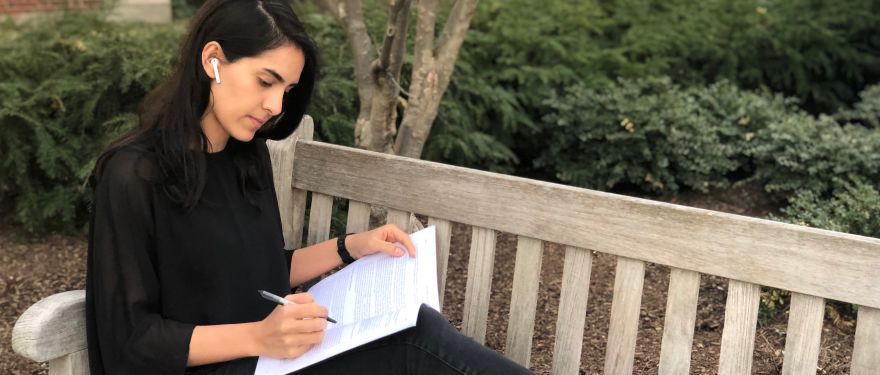Bismah Rahmat is a second-year student at HBS (Class of 2019). Here, Bismah shares her experience of how being an introvert specifically impacted her experience at the school as well as her summer internship search.
At first glance, it may seem that students in business school, and leaders in the broader business world, skew heavily towards being extroverted. As I approach the end of my time at HBS however, I realize just how many other introverts I’ve met (a Harbus article estimates that 35% to 55% of HBS students are introverts). Introversion is often too narrowly defined by how one recharges – by being with others or by spending time alone. Yet there are many other important aspects (well-summarized in the book Do What You Are) and these include: preferring to be more private, listening more than talking, favoring depth to breadth, keeping enthusiasm to oneself, needing time to respond, and actively avoiding being the center of attention. I list these out because 1) many of them seem to be in direct contradiction with the case method style of learning, and 2) I’ve found that acknowledging these traits is important in getting the most out of HBS and targeting a compatible career path.
Introversion and the case method
The case method forces you to think on your feet and puts you in the spotlight. This can be an uncomfortable experience for those who are naturally introverted – it certainly is for me. While it is an unnerving experience, it is also a unique chance to bolster important communication skills and build up a base level of confidence needed to address large audiences, a valuable “real world” skill.
Given that as an introvert I prefer a slower pace and value reflection (extroverts tend to appreciate a faster pace) and that we cover complicated, meaty subjects in 80 minutes through 500 cases over two years, I have found there to be limited time for pre and post-case reflection. While depth is often sacrificed, I feel that I have vastly improved my ability to synthesize and draw high-level takeaways more quickly. And ultimately, I think there is no other experience that compares in exposing such a range of managerial and societal issues in such a short amount of time. The case method helped me break out of my comfort zone and as a result, I was able to round out my skillset.
HBS outside the classroom
While there are a plethora of options for the more socially inclined – dinner with friends, parties, weekend travel trips, group study sessions – there is also a range of introvert-friendly options on campus. Some of my favorites include:
- De-stress Café: A quiet room with relaxing music complete with snacks and warm apple cider!
- Workout classes at the Shad fitness center: A group activity that requires no small talk
- Attending talks across the river at Harvard Kennedy School and then studying in the Smith Center: Both places where I am less likely to run into HBS folks
The JOMO (joy-of-missing-out) that introverts often experience balances with the all too common FOMO (fear-of-missing-out) that is quite palpable on campus.
While traditionally in society extroverts have received the bulk of attention, introverts are increasingly being acknowledged for their contribution to leadership. The introvert/extrovert conversation is very much a lively debate on campus. Recently a packed audience of students attended a faculty-led discussion titled Introverts vs. Extroverts in the Workplace. I really appreciate that at HBS different minds can come together to increase awareness about topics that are often taken for granted, such as nuances in personality types and their respective implications in business and social environments.
Summer Internship
A big question at business school is what type of summer internship one should pursue. While there are lots of obvious factors that may affect this choice (location, industry, pay, responsibility, etc.), I found it particularly helpful to think about how being an introvert factors into the decision. I chose to embrace my introversion this summer and start a small non-profit that partnered with local artists in Maputo, Mozambique to represent their art in New York. I was lucky to be supported by the HBS Social Enterprise Summer Fellowship, without which I likely would not have taken the leap. My decision to pursue entrepreneurship, often referred to as a lonely path, partly stemmed from the flexibility to create an environment compatible with my preferred style of working – quiet, intentional, and thorough.
And lastly, if you aren’t entirely sure where you fall on the introversion spectrum, we do a few personality tests during RC year (first-year) to help determine this precisely. To paint all introverts with a broad brush would be misleading but what is generalizable for me is the importance social preferences should play in decision-making at school and beyond.

